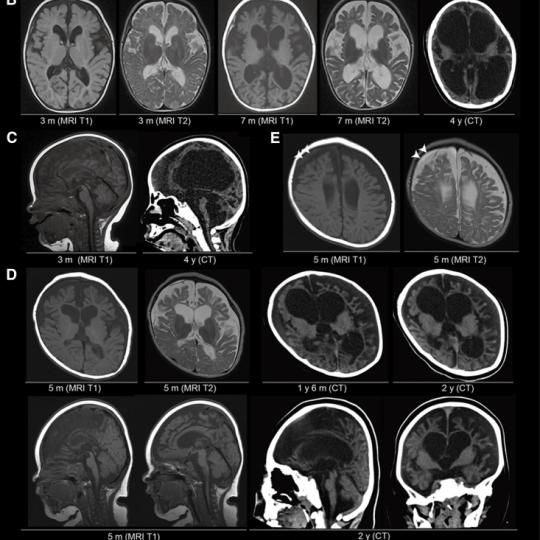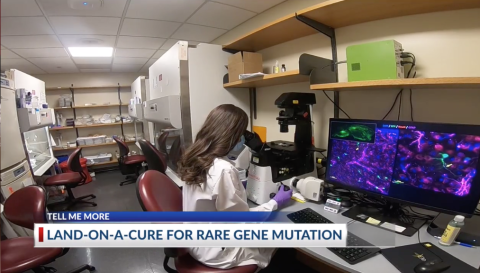We describe four families with affected siblings showing unique clinical features: early-onset (before 1 year of age) progressive diffuse brain atrophy with regression, postnatal microcephaly, postnatal growth retardation, muscle weakness/atrophy, and respiratory failure. By whole-exome sequencing, we identified biallelic TBCD mutations in eight affected individuals from the four families. TBCD encodes TBCD (tubulin folding co-factor D), which is one of five tubulin-specific chaperones playing a pivotal role in microtubule assembly in all cells. A total of seven mutations were found: five missense mutations, one nonsense, and one splice site mutation resulting in a frameshift. In vitro cell experiments revealed the impaired binding between most mutant TBCD proteins and ARL2, TBCE, and β-tubulin. The in vivo experiments using olfactory projection neurons in Drosophila melanogaster indicated that the TBCD mutations caused loss of function. The wide range of clinical severity seen in this neurodegenerative encephalopathy may result from the residual function of mutant TBCD proteins. Furthermore, the autopsied brain from one deceased individual showed characteristic neurodegenerative findings: cactus and somatic sprout formations in the residual Purkinje cells in the cerebellum, which are also seen in some diseases associated with mitochondrial impairment. Defects of microtubule formation caused by TBCD mutations may underlie the pathomechanism of this neurodegenerative encephalopathy.






